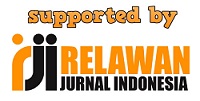Peran metode pembelajaran praktik dalam meningkatkan minat kewirausahaan mahasiswa PJKR FIK UNNES dibidang olahraga
Abstract
Keywords
Full Text:
PDFReferences
Astiti, Y. W. (2014). Pengaruh Pendidikan Kewirausahaan terhadap Motivasi Berwirausaha dan Keterampilan Berwirausaha Mahasiswa Pendidikan Ekonomi Universitas Negeri Yogyakarta. Skripsi. Universitas Negeri Yogyakarta
Badan Pusat Statistik. (2016). Keadaan Ketenagakerjaan Agustus 2016. Berita Resmi Statistik No. 103/11/Th. XIX, 07 November 2016. Jakarta: Badan Pusat Statistik.
Basrowi. (2011). Kewirausahaan untuk Perguruan Tinggi. Bogor: Ghalia Indonesia.
Boud, D. (1990). Assessment and the promotion of academic values. Studies in Higher Education, 15(1), 101-111.
Boud, D. (1995). Assessment and learning: contradictory or complementary? In P. Knight (Ed.), Assessment for learning in higher education (pp. 35-48). Londen, England: Kogan Page.
Dierick, S., & Dochy, F. (2001). New lines in edumetrics: New forms of assessment lead to new assessment criteria. Studies in Educational Evaluation, 27(4), 307 329.
Gielen, S., Dochy, F., & Dierick, S. (2003). Evaluating the consequential validity of new modes of assessment: The influence of assessment on learning, including the pre-, post-, and true assessment effects. In M. Segers, F. Dochy, & E. Cascallar (Eds.), Optimising new modes of assessment: In search of quality and standards (pp. 37-54). Dordrecht, The Netherlands: Kluwer Academic Publishers.
Gulikers, J., Bastiaens, Th., & Kirschner, P. (2004). A five-dimensional framework for authentic assessment. Educational Technology Research and Development, 52(3), 67-85.
Gulikers, J. T. M., Kester, L., Kirschner, P. A., & Bastiaens, Th. J. (2008). The effect of practical experience on perceptions of assessment authenticity, study appraoch, and learning outcome. Learning and Instruction, 18, 172-186.
Kasmir. (2006). Kewirausahaan. Jakarta: PT Rajagrafindo Persada
Lestari, R. B. & Wijaya, T. (2012). Pengaruh Pendidikan Kewirausahaan terhadap Minat Berwirausaha Mahasiswa di STIE MDP, STMIK MDP, dan STIE MUSI. Jurnal Ilmiah STIE MDP, 1(2), 112-119.
Messick, S. (1994). The interplay of evidence and consequences in the validation of performance assessments. Educational Researcher, 23(2), 13-23.
Millrood, R. (2001). Communicative language teaching.Modular course in EFL methodology. Tambov: Tambov state university.
Rusdiana, 2012. Kewirausahaan Teori dan Praktik, Bandung: CV. Pustaka Setia
Segers, M. S. R. (2004). Assessment en leren als een twee-eenheid: Onderzoek naar de impact van assessment op leren [Assessment and learning as twofoldness: Research on the impact of assessment on learning]. Tijdschrift voor Hoger Onderwijs, 22(4), 188-220.
Suryana. (2006). Kewirausahaan Pedoman Praktis, Kiat dan Proses Menuju Sukses Edisi 3. Jakarta: Salemba Empat.
Tillema, H. H., Kessels, J. W. M., & Meijers, F. (2000). Competencies as building blocks for integrating assessment with instruction in vocational education: A case from the Netherlands. Assessment and Evaluation in Higher Education, 25(3), 265-278.
Article Metrics
Abstract has been read : 360 timesPDF file viewed/downloaded: 0 times
DOI: http://doi.org/10.25273/jpos.v2i1.4010
Refbacks
- There are currently no refbacks.

This work is licensed under a Creative Commons Attribution-NonCommercial-ShareAlike 4.0 International License.






11.png)

